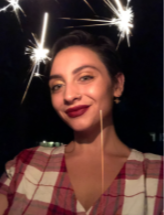Childrens’ TV shows aren’t just for children: Here are some to take a chance on
February 19, 2021
There are many interesting TV shows out there for seniors, adults, teenagers, children … not so many shows directed at infants, but that makes sense. As there is an average of 25 new TV shows that enter production each year directed at American audiences alone, you’d expect an adult who enjoys well-written plotlines, good diversity and representation, and a massive dose of fantasy elements would be sure to find shows they like. It turns out they can find them, just not in the age range of shows you’d expect.
Children’s TV shows like “She-Ra and the Princesses of Power,” the “Tales of Arcadia” series, “Hilda” and “The Dragon Prince”, just to name a few, all contain excellent scripts, wonderful representation and great lessons (none of which come across in a very preachy way), yet far too few adults have seen these shows, or would even consider watching them.
These children shows are some of the best, most well-rounded shows that I have seen in a long time. They have fantastic plot lines, natural character growth, wholesome comedy and representation of different minority groups that too many adult TV shows lack. While there are adult TV shows that have LGBTQ+ characters and relationships, Black, Hispanic and Asian characters, individuals with disabilities and so forth, too often those characters’ minority identity makes up the majority of their personality, experiences and plot lines in the show.
It is important to address these issues of discrimination, homophobia and racism that occur in real everyday life, but I feel it is also important to have shows that have inclusivity in a way that doesn’t emphasis how “different” these individuals are, or how difficult they have it because they are LGBTQ+, Black, Muslim, deaf or whatever identify it is.
Childrens shows like Netflix’s “She-Ra” have lesbian and gay characters whose LGBTQ+ identity isn’t a plotline in and of itself. Adora, one of the main characters, has an incredible romance arc with Catra—her childhood friend turned enemy turned lover—that revolves around their shared trauma and attempts to do what is right for them and the world, rather than cliche storylines like coming out or desiring for acceptance. Many adult-oriented shows would not have had the same restraint.
The show also features onscreen kisses between multiple LGBTQ+ and interracial couples. In “She-Ra,” it’s nice to see a utopia where instead of battling racism and other forms of discrimination, a diverse group of characters are battling the end of the world.
In Netflix’s “The Dragon Prince,” there are some lessons regarding racial discrimination with the fantastical dichotomy instead being focused on magical versus non-magical beings. Rather than emphasizing the socially-constructed concept of race as we know it, these lessons are around different species.
Furthermore, it shows that skin color—or what we view as race—has no impact on it’s characters. Ezran and Callum, half-brothers and main characters in “The Dragon Prince,” are both mixed race. There are elves with wide ranges of skin tones, and most importantly, race is never used as a basis for discrimination. Besides race, “The Dragon Prince” has some wonderful representation of LGBTQ+ and disabled individuals. A female general in the show is deaf, for example, and uses sign-language to speak throughout the show (which isn’t subtitled on Netflix, so it’s a fun easter egg for those who know some sign-language). There is an onscreen kiss between Rayla’s adoptive fathers and a non-binary elf in season three.
I don’t know why childrens’ shows seem to do so much more for accurate representation of minority groups, but I appreciate the art, interesting stories and wholesome representation that comes along with many of them.
I commend Netflix for some fantastic shows—suitable for anyone 7+—and I proudly recommend them to anyone who asks, ignoring any comments regarding being “childishness” that may come my way. After all, why shouldn’t adults watch more children’s shows? At any rate, why shouldn’t people be ashamed of liking kids shows, especially if they are great?



